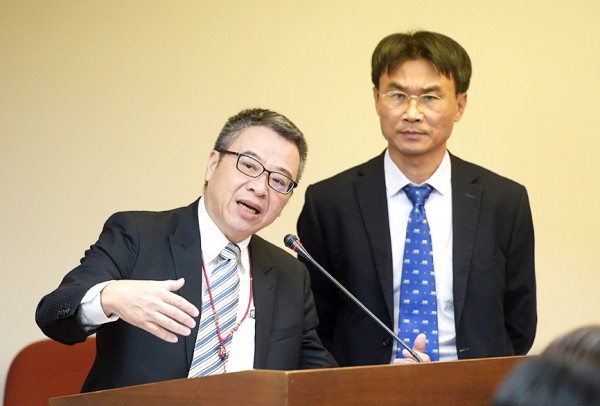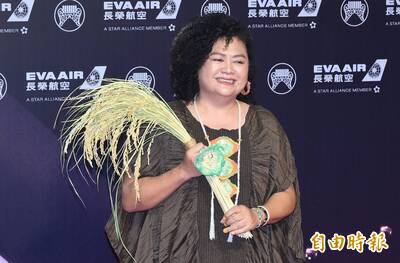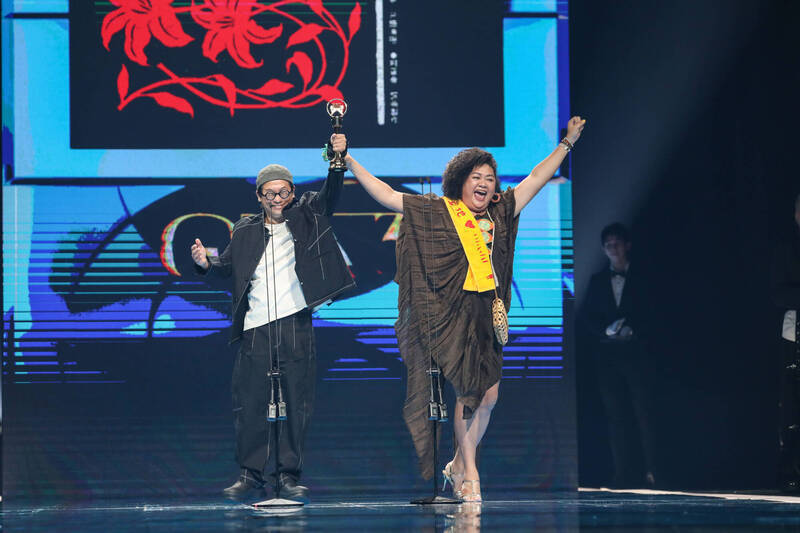《TAIPEI TIMES 焦點》 Two-stage end to ban on at-risk food from Japan mulled

Deputy Minister of Health and Welfare Ho Chi-kung, left, yesterday addresses lawmakers during a meeting of the Social Welfare and Environmental Hygiene Committee at the Legislative Yuan in Taipei, watched by Council of Agriculture Deputy Minister Chen Chi-chung. Photo: Chiang Chia-ming, Taipei Times
By Lee I-chia / Staff reporter
A ban on food imported from five Japanese prefectures near the crippled Fukushima Dai-ichi nuclear power plant should be eased in two stages, the Council of Agriculture and Ministry of Health and Welfare said yesterday in a report to a legislative committee.
Since the nuclear meltdown on March 11, 2011, Taiwan has banned all food imports from Fukushima, Ibaraki, Tochigi, Gunma and Chiba prefectures.
Rumors that the government planned to lift the ban have been circulating since a ministerial delegation visited Japan in August.
Council of Agriculture Deputy Minister Chen Chi-chung (陳吉仲) yesterday told the Social Welfare and Environmental Hygiene Committee that most nations have already lifted bans on food imports from the five prefectures and only Taiwan, China, Hong Kong and Macau still have total bans.
The council is hoping to ease the ban from “total” to “strict control over food products with higher [contamination] risks,” meaning that “high-risk food should not be allowed to be imported, and [the safety of] lower-risk food can be ensured by issuing ‘certificates of origin,’ ‘certificates of radioactivity’ and ‘certificates of border inspection,’” he said.
Taiwan could allow the import of some products from all of the prefectures except Fukushima, but still maintain a ban on high-risk food, such as seafood, teas or baby formula, he said.
However, legislators questioned how food safety could be ensured.
Democratic Progressive Party (DPP) Legislator Liu Chien-kuo (劉建國) asked how the government would prevent fake labeling of products, while DPP Legislator Wu Kun-yuh (吳焜裕) said ensuring the accuracy of information on the certificates would be paramount and border inspections must be thorough.
Chinese Nationalist Party (KMT) legislators Alicia Wang (王育敏) and Lee Yan-hsiu (李彥秀) asked if the ministry had sufficient personnel to inspect Japanese food imports batch by batch, and said the ban should not be eased unless supporting measures to ensure food safety are put in place.
Deputy Minister of Health and Welfare Ho Chi-kung (何啟功) said the ministry would guarantee that the batch-by-batch inspections would be tightly controlled.Executive Yuan spokesman Hsu Kuo-yung (徐國勇) told reporters that the Cabinet would hold 10 public hearings and meetings of experts as part of its evaluation on whether to lift the total ban.
Additional reporting by CNA
新聞來源:TAIPEI TIMES



















